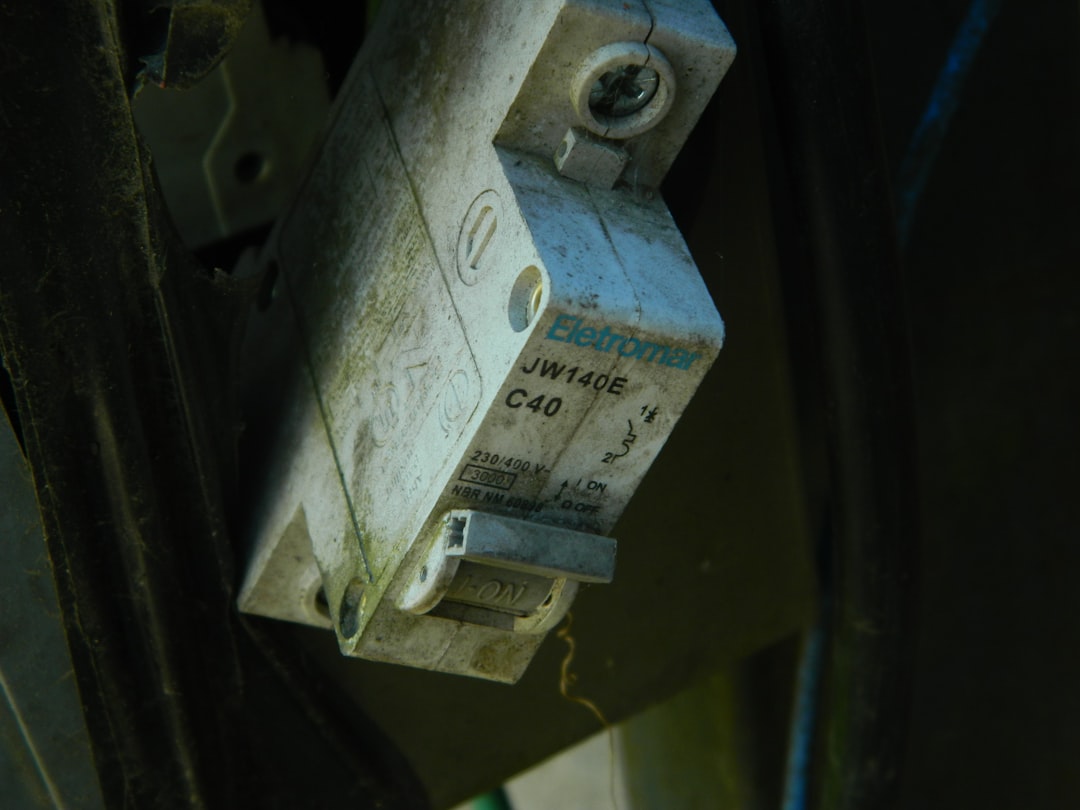
Why Fuse Box Issues Can’t Wait
Fuse box issues are common, especially in homes built before the 1960s. Flickering lights, dead outlets, or a burning smell near your electrical panel are all signs of a problem that needs immediate attention.
Most Common Fuse Box Problems:
- Blown fuses – Dark or cloudy glass, broken metal strip inside
- Frequent fuse failures – Same fuse keeps blowing repeatedly
- Burning smells – Acrid odors coming from the electrical panel
- Loose fuses – Fuses that don’t fit snugly in their sockets
- Corroded terminals – Rust or white buildup around connections
- Melted components – Heat damage to fuses, wires, or the panel itself
Your fuse box is your home’s electrical safety hub, protecting wiring and appliances from dangerous overloads. When the fuse box itself has problems, it can put your entire home at risk.
Knowing what to look for—and when to call a professional—can prevent costly damage and keep your family safe.
Understanding Your Home’s Electrical Guardian
Your fuse box is your home’s electrical guardian. Its critical job is overcurrent protection: it cuts power when the electrical flow becomes dangerous, protecting your family and property.
Each fuse in your box contains a thin metal strip designed to be the weakest link in an electrical circuit. When too much electricity flows through—due to plugging in too many appliances or a short circuit—this strip heats up and melts, instantly cutting off power to that circuit. It’s a simple, effective safety mechanism that has been used for decades.
Homes built before the 1960s often have fuse boxes. While reliable, they were designed for a time with fewer electrical demands. Today’s homes, with computers, multiple TVs, and modern appliances, often require more power than these older systems can safely provide.
Key FeaturesSafety BenefitsScrew-in fuses with clear amperage ratingsPrevents circuit overloads that could cause firesIndividual circuit protection for different areasIsolates problems to specific rooms or outletsVisual inspection capability through glass fuse topsEasy to identify blown fuses at a glanceSimple replacement process for homeownersQuick restoration of power to affected circuits
Important Note: While fuse boxes can be reliable when properly maintained, modern homes typically use updated electrical panels with circuit breakers for improved safety and convenience.
How a Fuse Protects Your Home
Inside every fuse, a small metal component called the fusible link or melting filament acts as your home’s electrical emergency brake. Electricity flows through circuits at different amperage ratings. A 15-amp circuit can safely handle 15 amps of current, for example. When the current spikes beyond safe levels, the fusible link heats up, melts, and interrupts the current flow completely. The circuit goes dead, but your wiring is protected from a potential fire.
The key is matching the right amperage fuse to each circuit. Using a fuse with too high a rating defeats the entire purpose and creates serious danger. If you’re curious about what triggers these safety mechanisms, check out our guide on What Causes Fuse Box Short Circuits.
Common Signs You Have Fuse Box Issues
Recognizing fuse box issues early can save you from dangerous and expensive problems. A single blown fuse might be a minor hiccup, but it can also be a red flag from your electrical system. Since electrical problems often start subtly, it’s crucial to know the warning signs.
- Frequent blown fuses on the same circuit
- Burning or metallic smells from the electrical panel
- Buzzing, hissing, or crackling from the fuse box
- Loose fuses that don’t stay snug
- Visible corrosion or rust around terminals
- Melted components or heat damage
- Scorch marks on the panel or wall
- Flickering or dimming lights
- Intermittent power loss
Frequent Blown Fuses
If you’re constantly buying replacement fuses for the same circuit, that’s a clear sign of a problem. Frequent blown fuses are the most common indicator of fuse box issues. Usually, it means your home’s electrical demands have outgrown its capacity. Homes built before the 1960s weren’t designed for today’s load of computers and high-powered appliances. Overloading a circuit causes the fuse to blow to protect the wiring from overheating. While this is the fuse doing its job, repeated occurrences mean you have a capacity issue or a more serious problem like faulty wiring. If you also notice Flickering Lights in Homes, it could indicate deeper electrical problems.
Physical Signs of a Dangerous Problem
Some warning signs signal immediate danger and require a professional electrician right away. Do not ignore these:
- Burning or acrid smells: This indicates electrical components are overheating and their insulation is burning—the start of an electrical fire.
- Hissing, buzzing, or crackling sounds: Your fuse box should be silent. These noises often mean electrical arcing or failing components, which can lead to a fire.
- Visible damage:Electrical Panel Rust and Corrosion creates poor connections and dangerous heat. Melted fuses or wires are clear evidence of severe overheating. Scorch marks on or around the fuse box show where dangerous heat has already occurred.
If you see, smell, or hear any of these signs, turn off the main power if it’s safe to do so and call a professional immediately.
Intermittent Power and Unreliable Performance
Sometimes fuse box issues cause frustrating, intermittent problems rather than complete failures.
- Loose-fitting fuses: Worn or corroded sockets can prevent a snug fit, causing flickering lights or appliances to work inconsistently.
- Corroded terminals: Corrosion on electrical contacts impedes current flow, so appliances may not get the steady power they need to operate correctly.
- Dimming lights: If lights dim when a major appliance turns on, your system is struggling with the electrical load. This can indicate an overloaded circuit or weak connections.
- Power loss to specific rooms: Intermittent power in certain areas often points to failing connections within the fuse box itself.
These subtle signs are common in older homes and often relate to the broader Electrical Issues Older Homes face.
How to Safely Diagnose a Blown Fuse
When the power goes out in one part of your home, a blown fuse is the likely culprit. Replacing a fuse is often a simple DIY task, but you must prioritize safety. Here’s a step-by-step guide to do it correctly.
Step 1: Identify the Problem Circuit
First, determine which lights and outlets are out to identify the affected circuit. Crucially, unplug every appliance and turn off all lights on that circuit. This prevents the new fuse from blowing immediately if the cause was an overload.
Step 2: Inspect the Fuses
Safety first. Stand on a dry surface, like a rubber mat or wood. Never touch a fuse box if it’s wet or shows signs of water damage—call a professional immediately. If possible, turn off the main power disconnect before opening the panel. Once open, look for the blown fuse. A healthy fuse has a clear glass top and an intact metal filament inside. A blown fuse will have a broken wire, darkened or cloudy glass, or a discolored casing.
Step 3: Replace the Blown Fuse
With the main power off, carefully unscrew the damaged fuse. Always replace it with a new fuse of the exact same amperage rating. Using a higher-amperage fuse is a serious fire hazard because it allows wires to overheat. For example, replace a 15-amp fuse only with another 15-amp fuse. Once the new fuse is securely in place, you can restore the main power. For more on electrical protection systems, see our article on Circuit Breaker Sizing in Penn Hills.
When to Stop and Call for Professional Fuse Box Repair
While replacing one fuse is manageable, some situations require an expert. Call for professional help if:
- The new fuse blows again immediately.
- You see any signs of burning, melting, or scorch marks.
- You feel unsafe or uncertain at any point.
- You are dealing with frequent blown fuses on multiple circuits.
These are signs of a larger problem. Our guide on When to Call Us? Fuse Box Repair can help you decide. We serve homeowners throughout the Pittsburgh area, including communities like Glenshaw, Plum, and New Kensington.
Upgrading Your Fuse Box: When and Why
Fuse boxes have served homes well for decades, but in a world of power-hungry devices, upgrading to a modern electrical panel is often essential for safety and functionality.
Is It Time for an Electrical Panel Upgrade?
If you’re constantly dealing with fuse box issues, it’s time to consider an upgrade. Other signs include:
- Your home is over 30 years old with its original panel.
- You’re adding major appliances like central AC or an EV charger.
- You’re planning a major renovation.
- Your insurance company requires an upgrade for coverage.
If this sounds familiar, it’s time to Consider Electric Panel Upgrade.
Key Benefits of a Modern Electrical Panel
Upgrading from a fuse box to a modern panel offers significant advantages:
- Improved Safety: Modern panels include GFCI and AFCI protection to prevent shocks and fires.
- Increased Capacity: More circuits to handle all your modern devices without overloads.
- Convenience: No more hunting for fuses. Just flip a switch to reset a tripped breaker.
- Increased Home Value: An updated panel is a major selling point for potential buyers.
- Future-Proofing: Gives you the flexibility to add new technology later.
Upgrading is an investment in your home’s future. Learn more about the Electrical Panel Upgrade Benefits we offer.
Why Professional Installation is Non-Negotiable
Upgrading an electrical panel is not a DIY job. The risks are too high, and the work is complex. A professional is essential for:
- Code Compliance: Licensed electricians know the current local and national safety codes.
- Safety: Working with your home’s main electrical system can be fatal if done incorrectly.
- Correct Wiring: Professionals understand load calculations and proper circuit distribution to ensure safe, efficient operation.
- Proper Grounding: This is critical for protecting your family and appliances from electrical faults.
Trust the Experts Handle Fuse Box Repair and upgrades for homeowners throughout the Pittsburgh area, from Upper Saint Clair to Greensburg.
Frequently Asked Questions about Fuse Box Issues
Homeowners often have questions about fuse box issues. Here are answers to the most common ones.
Can I use a higher amp fuse if the old one keeps blowing?
Absolutely not. This is one of the most dangerous mistakes a homeowner can make. Your home’s wiring is rated for a specific amperage. A higher-rated fuse allows too much current through the wires, which can cause them to overheat, melt, and start a fire inside your walls. The fuse isn’t the problem; it’s a safety device doing its job. A frequently blowing fuse is a symptom of an overloaded circuit or a short that needs professional diagnosis.
What are the main fuse box issues in a car?
While we specialize in homes, cars also have fuse boxes that protect their complex electrical systems. Common issues include blown fuses from aftermarket accessories, corrosion from moisture and road salt, and faulty relays. The core principle is the same: the fuse box protects the system from overloads and shorts. You can learn more about how a car’s electrical system is complex.
How can I prevent problems with my home’s fuse box?
Preventative maintenance is key to avoiding fuse box issues.
- Avoid Overloading Circuits: Don’t run too many high-power appliances on the same circuit at once.
- Perform Visual Inspections: Twice a year, take a flashlight and look for rust, corrosion, loose fuses, or burn marks.
- Don’t Ignore Warning Signs: A fuse that keeps blowing or flickering lights are symptoms that need attention.
- Schedule Professional Service: Regular check-ups, especially for older homes, can catch problems early.
We provide comprehensive Electrical Services for a Safe Home to keep your system in top shape.
Secure Your Home’s Electrical Future
Your home’s electrical system is critical to your family’s safety. We’ve covered the role of your fuse box, the warning signs of fuse box issues, and how to handle basic troubleshooting.
Remember: while replacing a single blown fuse is a manageable DIY task, most other problems require a professional. Frequent fuse failures, burning smells, melted parts, or buzzing sounds are serious issues. Attempting complex electrical work yourself can lead to fire or electrocution. Your safety is worth more than a service call.
Many homes with fuse boxes have systems that can’t keep up with modern electrical demands. If your home is struggling, an upgrade to a modern panel is the safest solution.
For homeowners throughout the Pittsburgh area—including Sewickley, West Mifflin, Ohara Township, Bridgeville, Green Tree, North Huntingdon, Baldwin, and Emsworth—Supreme Heating and Cooling is here to help. Our team provides honest assessments, competitive pricing, and the peace of mind that comes from a job done right.
Don’t let persistent fuse box issues turn into something more serious. If you’re experiencing persistent fuse box issues, it’s time to consider a professional Fuse Box Repair. Give us a call today, and let’s make sure your home’s electrical future is as secure as it should be.

.svg)

.webp)


.svg)
.webp)
.svg)
